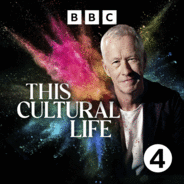Born George O'Dowd, Boy George shot to pop stardom in 1982 as frontman with the band Culture Club and later as a solo artist. With his soulful vocals and flamboyant, androgynous looks, he became a massive star around the world with hits such as Do You Really Want to Hurt Me? and Karma Chameleon. His personal struggles with drug addiction and a prison sentence in 2009 meant he was rarely far from tabloid headlines. In recent years he’s been a judge on The Voice, survived the jungle in I’m A Celebrity Get Me Out Of Here, and has just published a new memoir called Karma. He continues to record and perform as a prolific solo singer songwriter. George discusses the impact that David Bowie had on him as a teenager and recalls seeing him at the Lewisham Odeon during the Ziggy Stardust tour of 1973. He also talks about the important influence of club promoter Philip Sallon who introduced him to London's gay scene in the late 1970s. Meeting Quentin Crisp in New York with Andy Warhol was also a formative cultural moment. George talks to John Wilson candidly about coping with fame and rebuilding his life after addiction and prison. Producer: Edwina Pitman

Kultur & Gesellschaft
This Cultural Life Folgen
In-depth conversations with some of the world's leading artists and creatives across theatre, visual arts, music, dance, film and more. Hosted by John Wilson.
Folgen von This Cultural Life
144 Folgen
-
Folge vom 20.01.2024Boy George
-
Folge vom 13.01.2024Patricia CornwellPatricia Cornwell’s books have sold over 120 million copies in thirty-six languages in over 120 countries. She’s authored dozens of New York Times bestsellers. For over thirty years her protagonist, the forensic scientist Kay Scarpetta has been investigating murders across America, tracking down criminals by analysing evidence left on the bodies of victims. Cornwell has won the Sherlock Award, the Gold Dagger Award, the RBA Thriller Award, and the Medal of Chevalier of the Order of Arts and Letters for her contributions to literary and artistic development. She's also authored two books on the identity of Jack the Ripper. Her latest Kay Scarpetta novel is Unnatural Death.Patricia talks to John Wilson about her challenging childhood and upbringing in North Carolina. She reveals the influence of two works of literature on her own writing; Uncle Tom's Cabin by Harriet Beecher Stowe, an ancestor of Cornwell's; and William Golding's Lord of the Flies. She also talks about her interest in the Parthenon Sculptures and her fascination with the identity of Jack the Ripper.Producer: Edwina Pitman
-
Folge vom 06.01.2024Andrew ScottAndrew Scott won a BAFTA as the evil Moriarty in Sherlock, but is equally loved for a divine television role as the hot priest in Fleabag. A prolific and versatile stage actor, he has starred in many plays by contemporary dramatists, including Port and Birdland by Simon Stevens. He played Hamlet to great critical acclaim and won an Olivier award for his starring role in Noel Coward’s Present Laughter. His latest film role is All Of Us Strangers, in which he plays a single gay man haunted by the death of his parents. Andrew Scott talks to John Wilson about his suburban Dublin childhood and the early creative influence of his mother, an art teacher. After landing a debut role in an independent Irish film called Korea, Andrew gave up a university place studying drama to pursue an acting career. He remembers small parts playing American soldiers in Steven Spielberg’s Saving Private Ryan and the television series Band Of Brothers. He discusses his love of Shakespeare and his approach to playing the role of Hamlet at the Almeida Theatre in London in 2017, and reveals how the music of Pet Shop Boys, and in particular their 1987 album Actually, are a reminder of a formative time of his life.Producer: Edwina Pitman
-
Folge vom 30.12.2023Nigel KennedyJohn Wilson's guest is the violinist Nigel Kennedy. A prodigy whose childhood talents were nurtured by Yehudi Menuhin, one of the greatest violinist of the 20th century, Kennedy himself became an international star in 1989 with his recording of Vivaldi’s Four Seasons. It sold over three million copies, topping the UK classical charts for a year and went on to be listed as the biggest selling classical album of all time in the Guinness Book Of Records. An unconventional classical musician from the outset, it wasn’t just his wardrobe, accent and attitude that set him apart. As well as recording all the major violin concertos, his repertoire includes jazz standards, folk tunes and Jimi Hendrix. He remains one of the world’s greatest virtuosos. For This Cultural Life, Nigel chooses his two violinist mentors; Yehudi Menuhin and the French musician Stéphane Grappelli with whom he shared a love of jazz and improvisation. Going to New York to study at the prestigious Juilliard School also proved a turning point for Kennedy, not so much for the teaching he received there, but for the legendary jazz musicians like Jimmy Rowles and Ellis Larkins that he sought out in clubs downtown and in Harlem. Nigel also discusses how being a fan of Aston Villa football club has made him think about crowd dynamics in his concerts and reveals the influence of his dog Huxley on his approach to his career. Producer: Edwina Pitman
